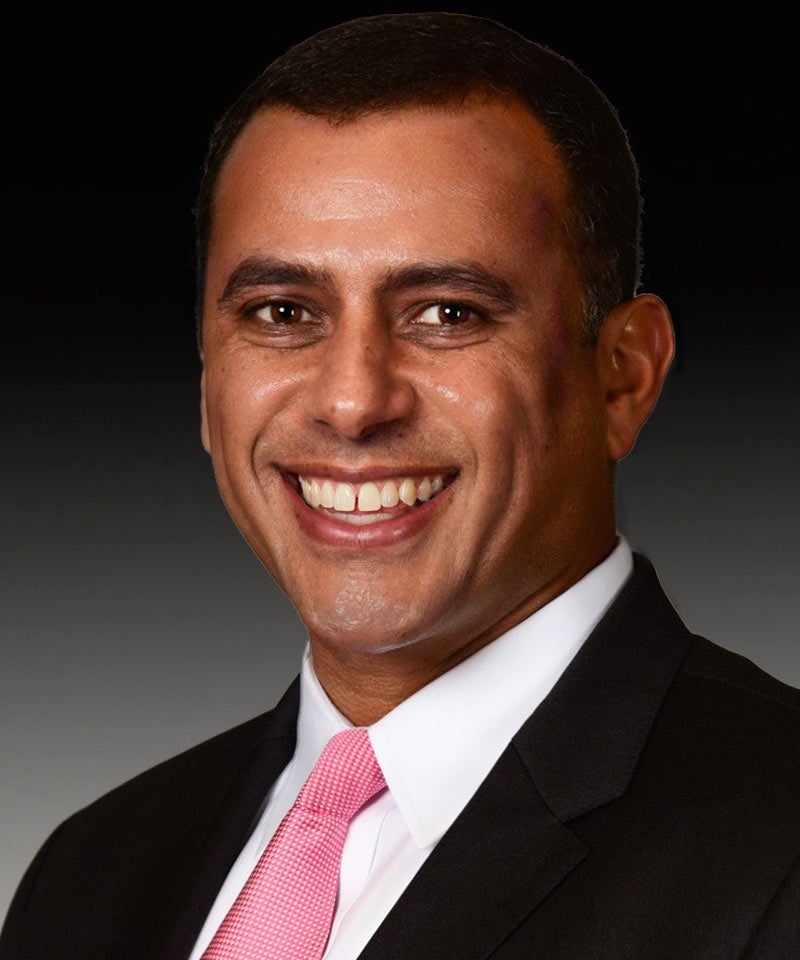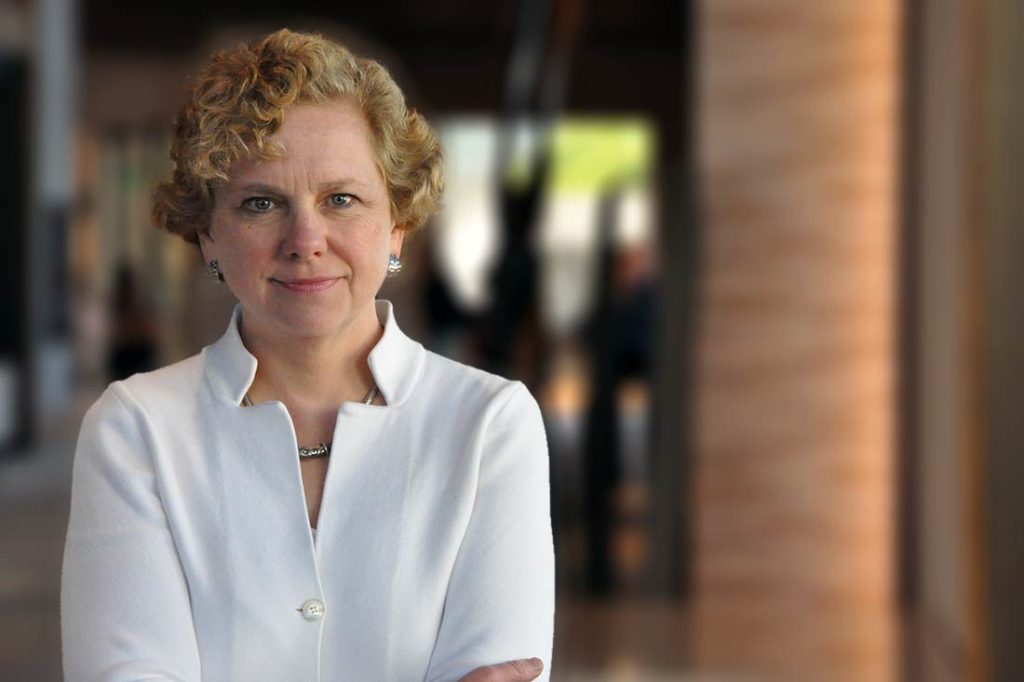Why McDonald’s is using policy advocacy to move the needle on climate change
McDonald’s and Environmental Defense Fund’s collaboration began three decades ago, when we partnered in an effort to reduce solid waste from the company’s restaurants. The results? Over the next decade, McDonald’s eliminated more than 300 million pounds of packaging (including the polystyrene clamshells), recycled 1 million tons of corrugated boxes and reduced restaurant waste by 30%, while saving an estimated $6 million per year.

Director, Government Relations, McDonald’s
Today, McDonald’s is once again working at the forefront of corporate sustainability, using the most powerful tool that companies have to fight climate change: their political influence.
I recently had a conversation with John Monsif, Director of Government Relations at McDonald’s, on why the company is leaning in on climate policy, and what key factors are necessary, both internally and externally, to become a successful climate advocate.
Below is an edited transcript of our conversation. The full discussion is also available on video, here.
Q: How did climate policy advocacy become a top priority for McDonald’s?
When you feed 69 million people a day, a resilient food supply is absolutely critical. At the same time, climate change is an increasingly important issue for our customers. That’s why, in 2018, we became the first restaurant company to set a science-based greenhouse gas reduction target, for our supply chain as well as for our restaurants.
As we developed the plan to turn our goals into action, it didn’t take long to realize that we needed public policy changes not just to achieve our own goals, but also to move the needle on climate change globally.
After we announced our science-based target, we worked hand in hand with our sustainability team to set clear climate policy principles for the company. These principles say government has an essential role in addressing climate change, and we encourage governments at the federal, state and local level to pursue policies to meet the Paris climate targets.
From there, we looked at our business and decided on four priorities: agriculture, energy, transportation and circular economy. We dove into those four areas to determine what policies made sense for us to support – and that enable us to meet our goals, and again, move the needle globally.
Q: Let’s talk about energy policy. In July of 2020, you spearheaded an open letter from more than 30 companies asking Congress to include clean energy provisions in COVID recovery funding. Why did McDonald’s decide to lead this effort, and how did you make it happen?

It was a collaborative effort both internally and externally. It started from one of our first conversations, Victoria, about the need for businesses to speak out about climate issues, in particular energy, as we were negotiating COVID relief.
After some internal discussions, we decided that this was a good opportunity for us to weigh in as a company to support the renewable energy industry, which we depend on to meet our climate goals. We then turned to our external partners – trade associations, other companies, and nonprofit groups – all of which support the use of renewable energy. We wanted to ensure that climate and energy didn’t get put on the backburner in the midst of this global crisis, especially as the renewable energy industry was facing tough times, too.
Together as a group of more than 30 companies, we made the case that a vital clean energy sector is a powerful engine for economic growth and job creation. In the end, our letter was well received on the Hill and beyond. Lawmakers told us they especially appreciated hearing from corporations that are major buyers of renewable energy, in addition to the “usual suspects” that typically advocate for it.
Q: What does it take for a company to be an effective advocate for climate policy? What are the organizational elements that need to be in place?
First of all, climate action has to be a clear priority internally, across the entire company. And it has to come from the top. It’s also crucial to work across the company: with your colleagues from the sustainability team, the legal team, the supply chain or procurement division, the corporate relations team, and more. You need to show them how working together to advance climate policy can be beneficial to them and to the company.
You also have to develop partnerships externally. A key part of my job is to showcase to our partners that McDonald’s is serious about climate action and willing to lean in on policy issues. McDonald’s has built relationships with nonprofit organizations, including EDF, an important ally in the climate space. We also look for opportunities to partner with like-minded companies to advance issues that are mutually beneficial. Collectively, as coalitions, we can make a much bigger impact.
Finally, it’s crucial to develop relationships on Capitol Hill. I’ve lost track of how many times I’ve been on the Hill, where folks have said to me that they didn’t know McDonald’s cared about climate change. When I explain why it’s such a crucial priority for us and what the business case is, there’s often an “aha” moment that is really rewarding.
Building relationships with lawmakers and their staff allows you to become a trusted partner and a resource to them as they develop legislation. It’s important for all businesses to have their voices heard on the Hill, especially with members who might not initially understand why addressing climate change is important to us, because businesses have the experience and the knowledge to help inform legislation.
Q: With a new administration and Congress getting sworn in this month, what opportunities do you see to advance climate policy?

President-elect Biden has made it clear that climate is one of his top priorities. That means we’re going to see a shift here in DC, where both the White House and the House will be prioritizing climate action. This is something we haven’t seen over the last several years, and that in itself is very exciting.
Assuming we have a divided government, we’ll probably see a lot more action with executive orders, but I’m optimistic that we’ll see legislative successes, too.
Ultimately, climate policy will have to be a bipartisan effort similar to recent sustainable agriculture legislation, led by Senators Braun and Stabenow, which we also supported. McDonald’s will be working with the administration, and with the Senate and the House to find opportunities to drive progress in the climate and energy space. I look forward to an aggressive and successful year – or years – ahead.
Q: Can you tell me more about the work you’re doing to align your trade associations’ advocacy with your climate goals, as outlined in the NGO-backed AAA Framework for Climate Policy Leadership? What role do you see industry groups playing in driving progress?
It’s important for any business to ensure that what its trade associations are advocating for aligns with a company’s goals and principles. I think every member of these trade associations has a responsibility to ensure that the messages that trade associations are giving on Capitol Hill align with the messages that companies themselves are giving.
From McDonald’s standpoint, we’ll continue to work with our trade associations to find opportunities to lead on climate and energy related policies in the coming years.
So to sum up, my takeaways are that ambitious goals, effective policy advocacy, and strong partnerships add up to a powerful response to the climate crisis.
I couldn’t agree more. Thank you for your time today, John, and for your leadership.
Connect with Victoria on LinkedIn.